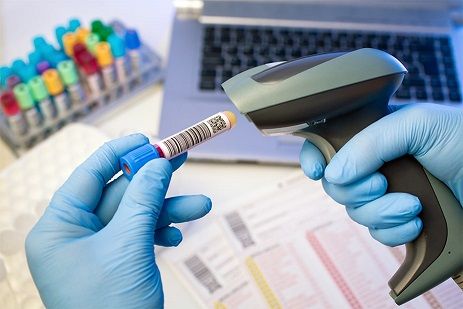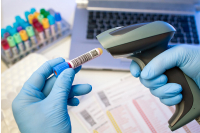Meaning of Low and High Lab Test Values: A to C

Table of Contents
- Lab Test Ranges and Complications Of High Or Low Blood Levels – A to C
- 1. Alanine aminotransferase (ALT, SGPT)
- 2. Albumin
- 3. Alkaline phosphatase (adults)
- 4. Androstenedione (adult)
- 5. Aspartate aminotransferase (AST, SGOT)
- 6. Bilirubin, direct
- 7. Bilirubin, total
- 8. Calcium
- 9. Carbon dioxide, total
- 10. Chloride
- 11. Cholesterol
- 12. Creatinine
Lab Test Ranges and Complications Of High Or Low Blood Levels – A to C
It's important to test different substances and hormones in the human body to discover their exact levels. For example, most people do glucose or calcium tests. The results usually get back to you in a few business days and you can ask your doctor to interpret these results.
However, why shouldn't you be educated when it comes to the lab ranges of hormones in your bloodstream? In other words, what complications might arise if you have too little testosterone? What should you expect if you have too much bilirubin in your blood?
The following content is part of a series of articles that explain the complications of having abnormal lab ranges for popular substances and hormones. The substances in this article include alanine aminotransferase, albumin, alkaline phosphatase, androstenedione, aspartate aminotransferase, bilirubin direct, bilirubin total, calcium, carbon dioxide, chloride, cholesterol, and creatinine.
Keep reading to become more educated about your health and understand your body better!
1. Alanine aminotransferase (ALT, SGPT)
The normal values are:
- 10-55 U/liter for males
- 10-55 U/liter for females
Alanine aminotransferase is an enzyme made by your liver. It's important to test this substance to determine whether your liver is infected or not.
When it's too high
- The liver cells might be seriously damaged, to the point of necrosis
- It might be a sign of extensive trauma to the liver, left heart failure, cirrhosis or jaundice
- Might also be a sign of muscular dystrophy, fatty liver, myocardial infarction, and liver tumors
When it's too low
- Low values of ALT indicate pyridoxal phosphate deficiency that can result in various health complications including epilepsy
2. Albumin
Normal values
- 1-4.3 g/dl for men and women
Albumin is one of the most important proteins in the human body. It helps to carry nutrients to various tissues and it prevents blood vessels from leaking fluids.
When it's too high
- It might signify severe dehydration. It's not possible to increase albumin levels naturally. The only way albumin concentration might get higher is if plasma water decreases significantly
When it's too low
- This is a sign of acute or chronic inflammation
- Albumin levels might drop if the liver has problems synthesizing this protein properly, so it might indicate liver damage
- The transportation of bile acids and metal ions might be affected if the albumin levels get too low
3. Alkaline phosphatase (adults)
Normal values
- 45-115 U/liter for males
- 30-100 U/liter for females
Alkaline phosphatase is also known as ALP and it's found in different tissues in the body. This enzyme is mostly present in the bones and liver. It plays a vital role in bone formation and mineralization.
When it's too high
- It might be a sign of biliary obstruction or liver diseases such as hepatitis or cirrhosis
- Sign of bone disorder or even renal problems
- In some cases, it might indicate thyroid issues
When it's too low
- It might signify nutritional deficiencies such as a lack of vitamin B12, magnesium or zinc
- Might be caused by severe anemia
4. Androstenedione (adult)
Normal values
- 50-250 ng/dl for men and women
This is a precursor of major sex hormones such as testosterone and estrogen. Testing for this hormone is necessary in conjunction with other hormonal tests to determine the levels of testosterone or estrogen in the body. Androstenedione is produced by the gonads and adrenal glands.
When it's too high
- Elevated levels might indicate a gonadal tumor, especially when the levels exceed 500 ng/dl
When it's too low
- This might signify a dysfunction of the adrenal glands such as adrenal insufficiency
- It might signify ovarian or testicular failure if the levels are too low
5. Aspartate aminotransferase (AST, SGOT)
Normal levels
- 10-40 U/liter for men
- 9-25 U/liter for women
Aspartate aminotransferase is an enzyme found in most tissues in the human body, particularly in the liver and the heart. It has multiple functions in the human body and abnormal levels usually indicate a liver problem.
When it's too high
- This could be a sign of liver cell necrosis or obstructive jaundice
- It might also signify hepatitis or a liver problem caused by drugs and medications
- Since this enzyme is found in the muscles, it might be a sign of skeletal muscle, inflammatory disease or even heart failure
Normally, the levels of aspartate aminotransferase should be low. Problems appear when these levels get very high due to organ failure or inflammation.
6. Bilirubin, direct
Normal values
- 0-0.4 mg/dl for men and women
Bilirubin is a yellow substance involved in the process of cleaning organic waste from the body such as dead red blood cells, etc. It is excreted in the bile and urine and it consists of direct and total bilirubin. When doing a blood test, your results might indicate the levels of direct and total bilirubin as both of these are important to diagnose certain diseases.
When it's too high
- It might signify a biliary tree obstruction, cholestasis, and damage to the hepatic cells
- The patient might have the Dubin-Johnson syndrome which is characterized by an increase of direct bilirubin in the liver
When it's too low
- Low levels of direct bilirubin are usually not a cause of concern. These levels might be temporarily lowered by caffeine consumption or barbiturates
7. Bilirubin, total
Normal values
- 0-1.0 mg/dl for men and women
This is the total amount of bilirubin enzymes in your body, including direct and indirect ones. Low levels of total bilirubin are not a problem in most cases. You should see a doctor when these levels are elevated as they can signify different types of damages to your organs.
When its too high
- It might be a sign of neonatal physiological jaundice
- High levels might be caused by damage to the hepatic cells caused by toxins or inflammation
- It might be a sign of biliary tree obstruction
8. Calcium
Normal values
- 5-10.5 mg/dl for men and women
Calcium is one of the most important minerals in the body. It's directly involved in the mineralization and growth of bones and it ensures that teeth remain in good condition.
When it's too high
- This might be a sign of hyperparathyroidism, bone disorders, malignant disease such as metastatic carcinoma of breast and kidney, etc
- Your blood might contain too much vitamin D which leads to intoxication
- Acromegaly or dehydration
When it's too low
- It might be a sign of hypoparathyroidism or chronic kidney failure
- Might be caused by a deficiency of vitamin D or magnesium
- The patient might have acute pancreatitis, anemia or problems with the pituitary gland
9. Carbon dioxide, total
Normal values
- 24-30 mmol/liter for men and women
Carbon dioxide is a byproduct of the food metabolization process. This gas is released into the bloodstream when cells are broken down in simpler substances. The blood full of carbon dioxide returns to the lungs where this gas is eliminated through respiration.
When it's too high
- It might be a sign of respiratory acidosis resulted from a poor gas exchange in the body
- Can also be caused by metabolic acidosis, especially if it's accompanied by multiple episodes of vomiting
When it's too low
- It might signify tubular acidosis of the kidneys
- Might be a sign of loss of alkaline fluids through the intestines or compensated respiratory alkalosis
10. Chloride
Normal values
- 100-108 mmol/liter for men and women
Chloride forms when the element chlorine gains an electron. This is an important electrolyte that helps to maintain cell homeostasis or balance.
When it's too high
- It might be caused by metabolic acidosis, especially when it's accompanied by loss of fluids caused by diarrhea
- It can also be caused by severe dehydration or a problem with the kidneys such as renal tubular acidosis or acute renal failure
- Hyperparathyroidism can also cause chloride levels to increase
When it's too low
- It might be caused by too much vomiting or prolonged episodes of diarrhea
- Low levels can also be caused by gastric problems such as gastric suction or gastric secretion
- Excessive sweating or respiratory acidosis can also make the chloride levels drop significantly
11. Cholesterol
Normal values for men and women
- The ideal level is less than 200 mg/dl
- The upper limit is 200-239 mg/dl
- High is anything above 239 mg/dl
Cholesterol is one of the most popular substances tested by patients all over the world. This substance lines up the interior of your blood vessels and arteries. It's necessary for making new cells, but too much of it can be a problem. Cholesterol is made by the liver, but it can also be taken from foods.
When it's too high
- It might be a sign of prostate or pancreas dysfunction, but it can also be caused by gout, hypothyroidism, chronic renal failure or extrahepatic cholestasis
- Can be caused by alcoholism or anorexia nervosa as well as acute intermittent porphyria
- Might facilitate the development of atherosclerosis that can lead to various cardiovascular diseases
When it's too low
- This might signify lipoprotein deficiency or the necrosis of liver cells
- Can also be caused by malabsorption of nutrients as well as malnutrition
- It might be associated with mental retardation, rheumatoid arthritis or obstructive lung disease
12. Creatinine
Normal levels
- 6-1.5 mg/dl for men and women
Creatinine is a byproduct of creatine and it's produced by the muscles, especially after a strenuous workout. It's eliminated from the body by kidneys through urine.
When it's too high
- Too much creatinine in the body might be a sign of renal failure or kidney dysfunction
- Hyperthyroidism can also be a cause of too much creatinine building up in the body as well as acromegaly
- Eating too many meals containing meat can increase the level of creatine and creatinine in the body
When it's too low
- This might be a sign of excessive muscle loss, probably caused by muscular dystrophy
- It can also be a sign of liver problems or a lack of protein in your diet






